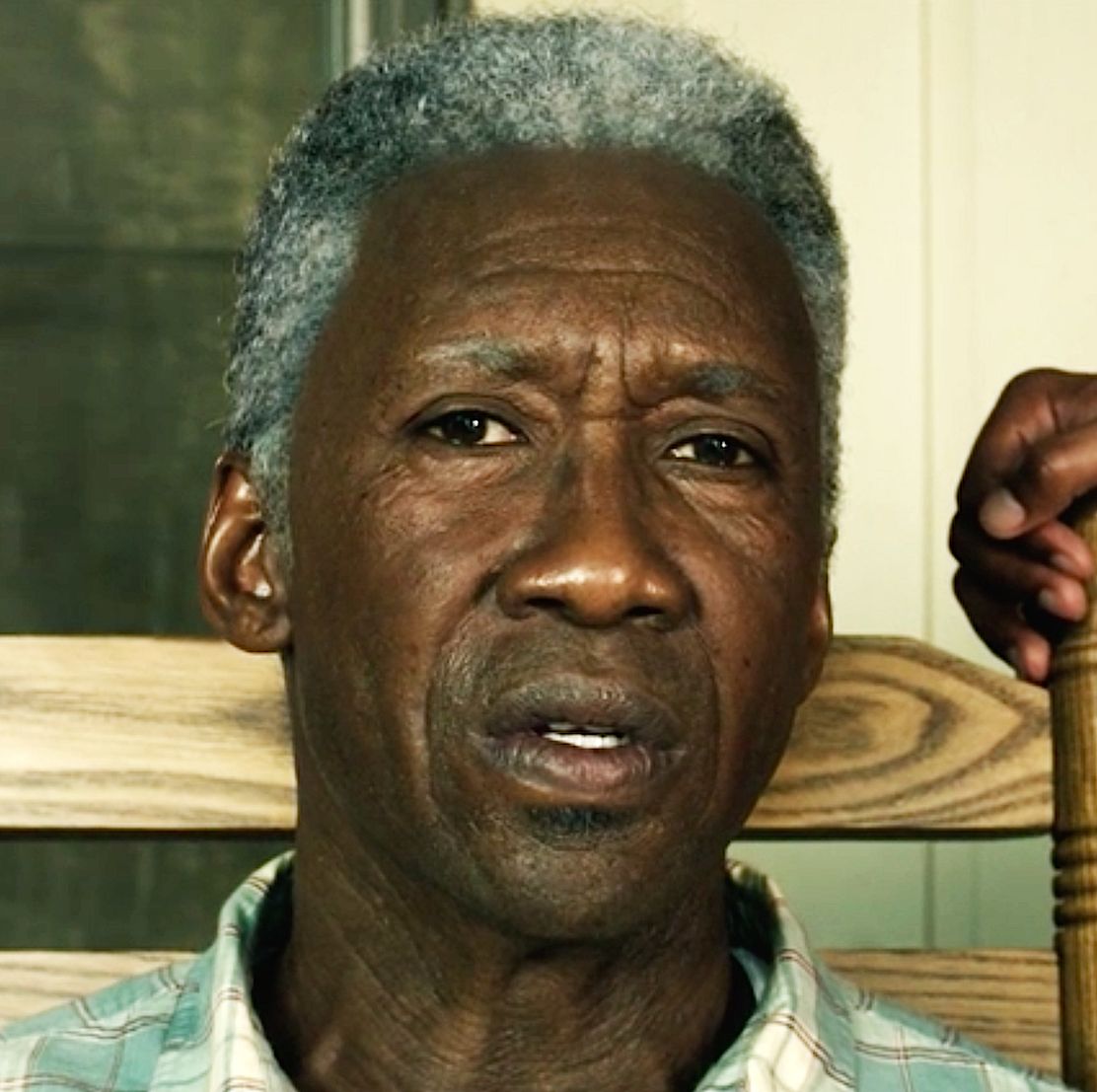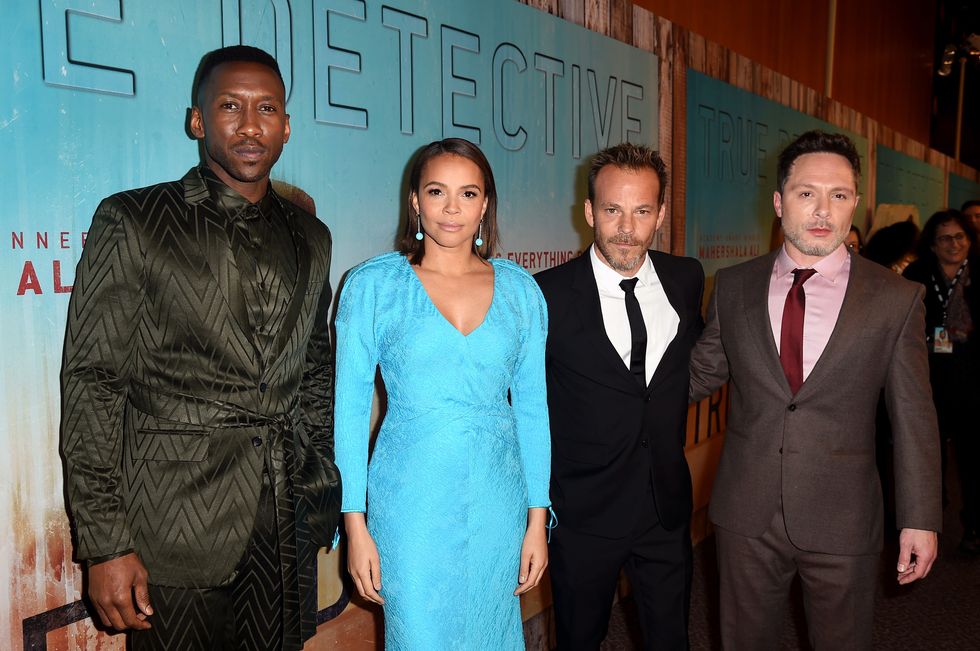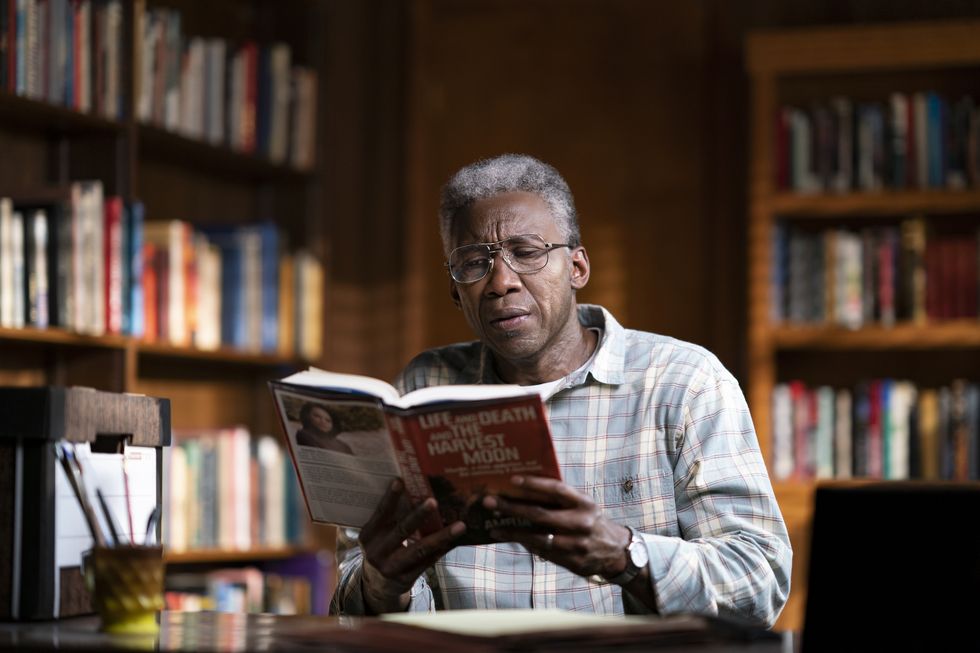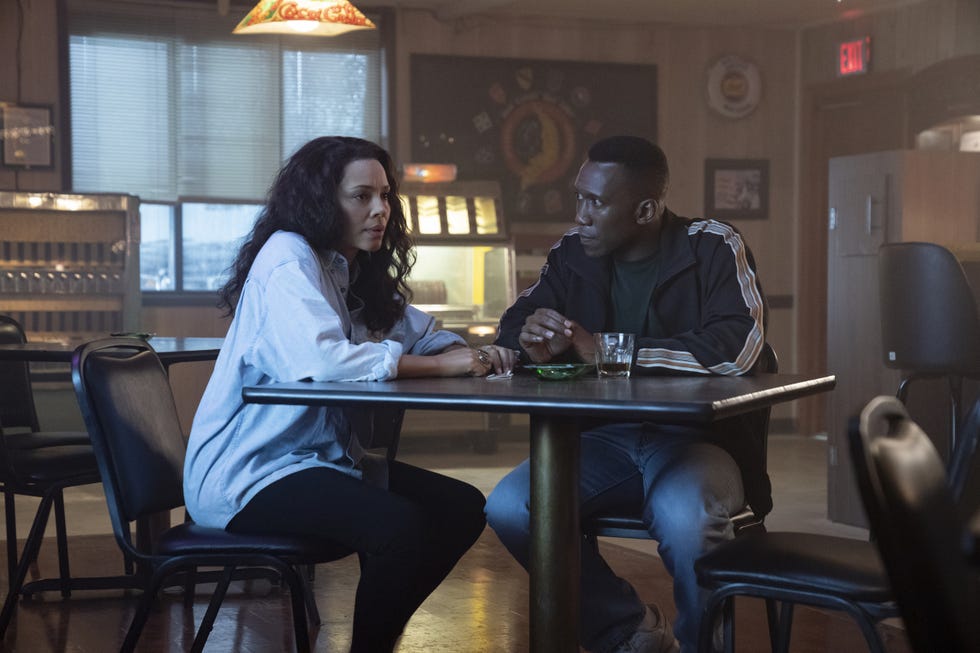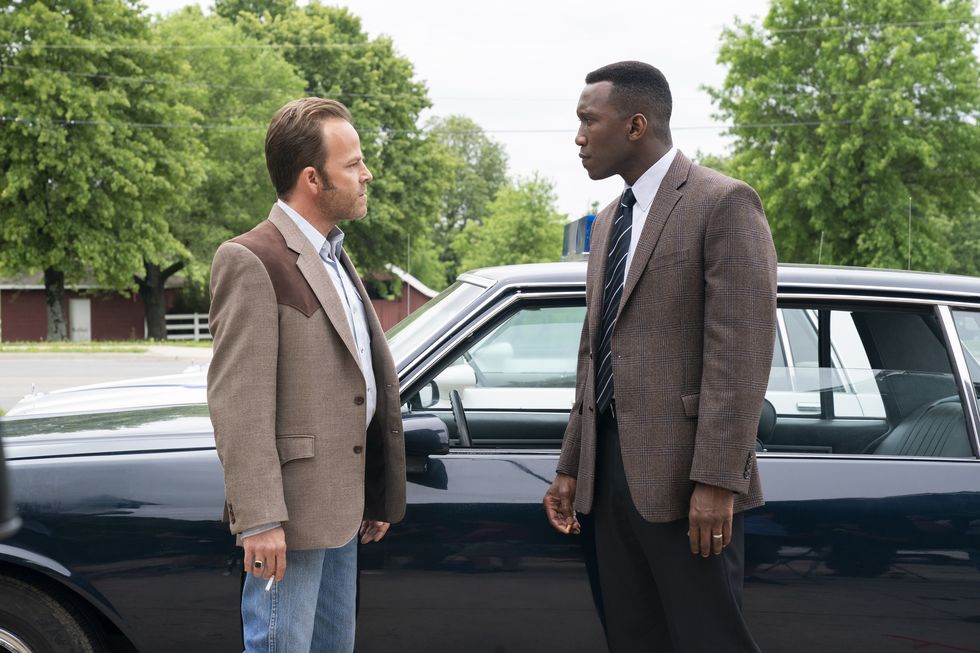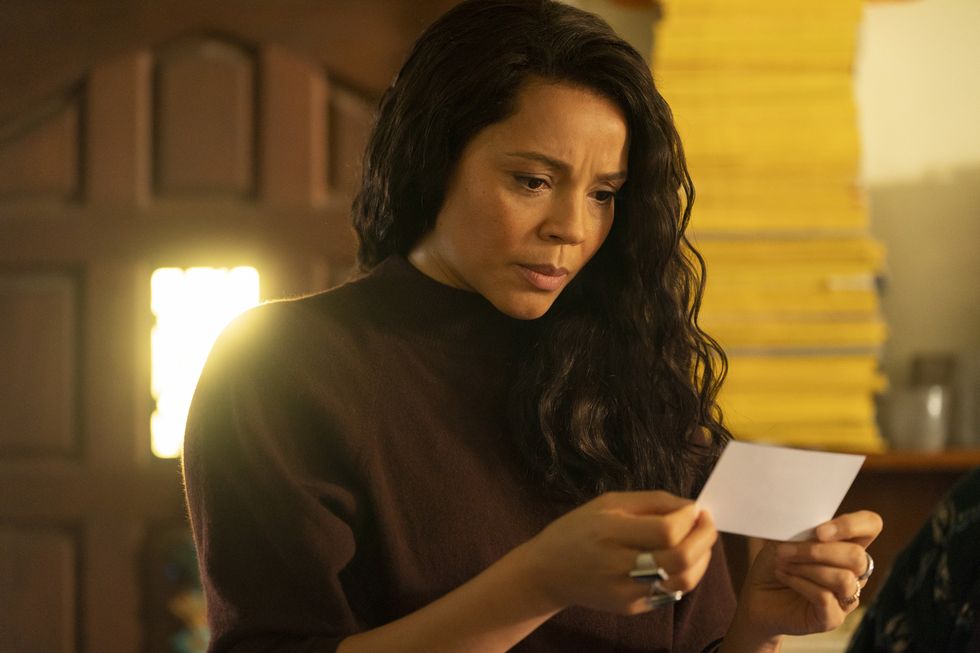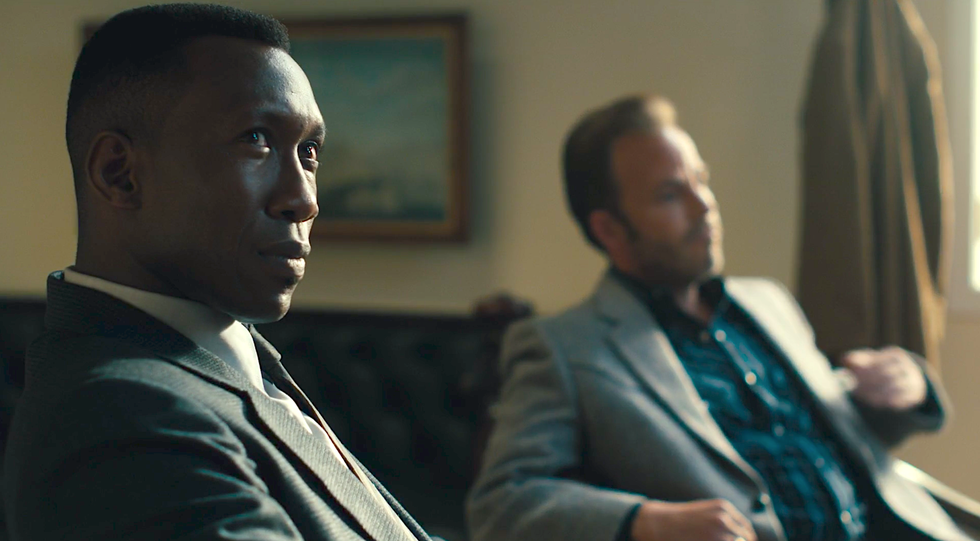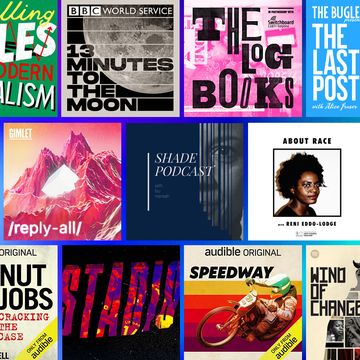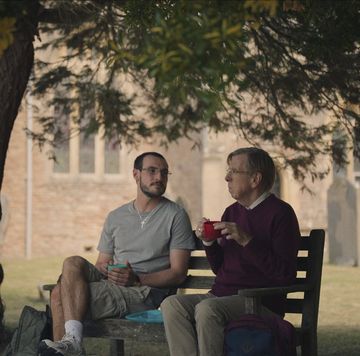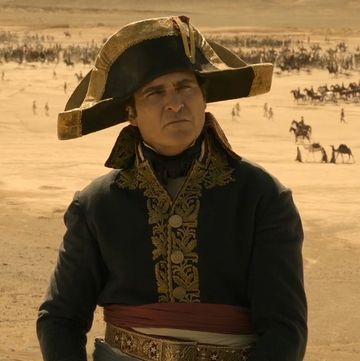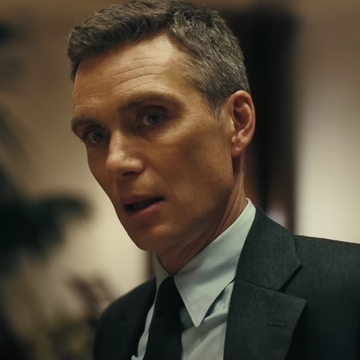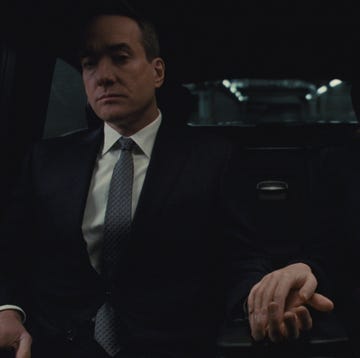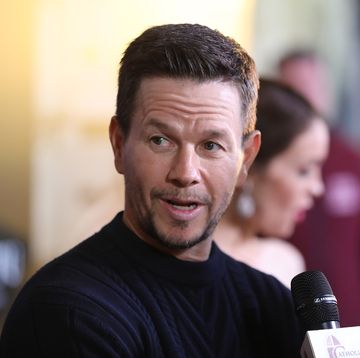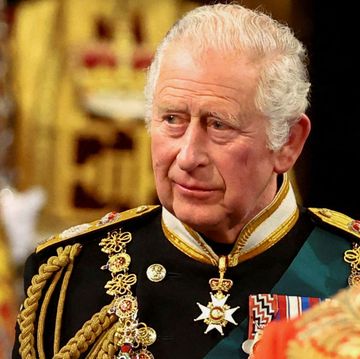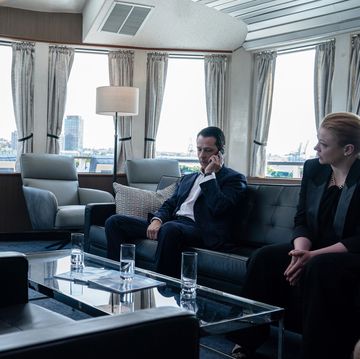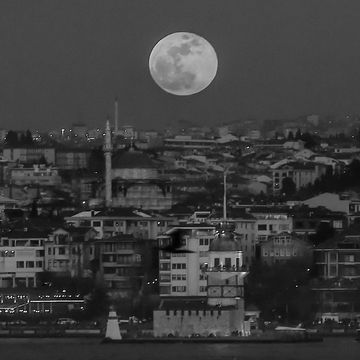True Detective fans like to consider themselves the real true detectives. If you happened to be following along with blogs or conversations within the active Reddit community during Season Three, you'll have seen theories ranging from "Amelia is the killer," to discussions of Roland's sexuality, to an amazingly wild idea that Hays died in Vietnam and this was all a Jacob's Ladder-type scenario.
This speculation is part of the fun of True Detective, as amateur sleuths investigate every scene for details—this room looks a lot like one of the missing child's drawings!—to every syllable of dialogue.
In the end, True Detective was far more contained than many of the theories out there: Hoyt's mentally ill daughter Isabel accidentally killed Will Purcell. Then Isabel, with the help of Hoyt's employees, covered up the death and kept Julie Purcell captive—and sedated with drugs—for a decade. Julie escaped, lived on the streets, found a convent to live in, and eventually met an old childhood friend, whom she married and lived happily ever after. Wayne Hays and Roland West—the detectives who spent their entire lives with the case—found some closure and were able to put the mystery to rest.
The True Detective community, however, wouldn't let things end so easily. Blogs and Reddit have been flooded since the Season Three finale on Sunday with theories about the ending. Meanwhile, creator Nic Pizzolatto has been trying to keep up with the conversation out there, setting the record straight on Instagram. But now, in a rare interview about Season Three, Pizzolatto unpacks what really happened to Julie Purcell, the fate of Amelia, the connection to Season One, Hays's memory of solving the crime, and the possibility of a Season Four.
ESQ: This goes all the way back to season one, but there's such an active community talking about True Detective, and it's been fun to see you engage with viewers through Instagram.
Nic Pizzolatto: Yeah, I hadn't done that before, and a younger friend of mine recommended Instagram because I've just never been a social media person. I found I really enjoyed engaging with fans to the degree I could without ruining anything. I wanted to help reel in the wilder speculations to try to help people manage their expectations a little bit and to maybe help them see what we were trying to focus on. And I enjoyed the dialogue and I enjoyed seeing people talk amongst themselves. I liked seeing the conversations and discussions that would develop among the fans.
I remember seeing you chime in on theories that Amelia was the killer and another one speculating that Roland's character might be gay.
I just felt like there was no reason to not offer some clarity about those issues. The Amelia thing, I just really didn't get. She's a complicated, ambitious, but fundamentally good person who wants to be a writer. I don't see how you would make the leap from there to child killer.
That kind of twist isn't something I really considered good storytelling—that I was lying about how I was portraying a character. And it would make Wayne a pretty terrible detective, because he was married to this woman for 33 years and he never clocked the fact that she was a murderer. So I thought that by providing clarity to that, it would help those fans who thought they were being set up for something like that. And again, the same thing with Roland—I was just providing clarity.
Is it difficult to remove yourself from what Reddit or blogs or critics or fans my interpret while you're writing?
Yeah. I think you really have to focus on the work, and the story you're telling and the conscious of what you're putting down and what you're portraying but at the end of the day. You're not going to be able to control projection, and the speculation that arrives. We tried to be as upfront with the viewer as was possible and telling you everything that's going to happen before it happens.
A lot of the readings I've seen out there have considered documentarian Eliza Montgomery as a kind of stand-in for Reddit, or a take on other real true crime documentaries in the way she attempts to make these leaps to connect the Purcell case to the Yellow King in Season One.
You know, it's not quite that meta, I think, but definitely one of her functions was to serve as a speculator. Wayne's talking to her fundamentally to tease out the information that she might know. And once he realises that she doesn't know about what he did or about Julie Purcell's ultimate fate, he's stumped. It was also a way of acknowledging that we recognise that Yellow King story possibility. Like, it could have been that, but we're not interested in that.
So speaking of that, you were kind of quick to dispel some of those theories about the two crimes being connected in Season One and Season Three. Why did you want to make it clear that they took place in the same fictional universe, but weren't so deeply involved?
For me, it was something like fan service but with the point of saying that this is all one universe and that these things coexist. It has that connection, but at the same time also saying this story is not that story.
The wildest theory I saw out there involved Hays being dead the whole time and this being some sort of Jacob's Ladder-type situation.
Yeah, that's not true. I'm not sure how much I should say about the very final sequence because I can literally explain it, but it might be the kind of thing that's better left to interpretation for a while. But Wayne definitely did not die in Vietnam, and everything that you witnessed actually happened. That was one of the things that I tried to dispel earlier on, this idea that everything is only a good a thing in Wayne's mind. It's much more of a realist procedural character study with some kind of physical interpretations of Wayne's condition given how we move around in time.
Am I correct that this is the only time we actually see Vietnam in the season?
Right, that was actually the farthest you've seen ... that's the farthest regression we've seen as far as time goes in the series. And I would say that's the nature clue more than anything, not that this was all a dream. And that's kind of curious too that if Wayne dies in Vietnam, who's telling this story? I definitely I respect and appreciate the level of engagement, no question.
I read that final scene as so much of this had to do with memory and we finally see the actual events of what those memories did to him throughout his entire life and I thought that was an interesting way to circle back what was another pivotal moment in his life.
Yeah, and if you think about it, the first episode ends with Wayne walking alone into a dark forest and that's also how the last episode ends.
To me, the most important moment of the finale was when Wayne's son Henry pockets the address for Julie. It seemed like a hint that he could solve this thing.
Yeah, I think in one of the scenes we lost, you got to actually witness what a good detective Henry is. I think it's an unwillingness to let go of something, some kind of actionable meaning to his father. Knowing that, he has that part of his father in himself, that the dogged investigative part. I do think it's open that Henry might check this out at some point in the future. I think he's probably done with the Montgomery character, but I can imagine a world where Henry follows up on his address and perhaps reaches some closure for himself and Roland. It might be as simple as just saying, in the end he wasn't willing to throw away his father's life.
So the scenes of him being a detective were cut?
There was a scene in the finale where Henry is observing his father in the documentary interviews, and there's a line by Roland, when Roland tells Henry, "Hey, I told your dad he shouldn't be talking to those people, it could be dangerous." And Henry goes, "Dangerous, how?" And Roland flips, like to get off the topic. Those things as well as a personal timeline of his father's history, Henry figures out what happened to Harris James. And he interrogates his father about it.
One of the cut scenes you discussed on Instagram had to do with Amelia's death.
Yeah. And again, the reason I addressed it was I just felt like fans were owed that. Even if you're paying attention, I think, in the early episodes, Wayne mentioned it was just a couple years ago and they had plans to travel, but I did feel like fans deserved that answer and since we didn't get to put the scene in the final cut of the finale. I just wanted to clear that up for them. I don't think the story's weaker for not having it. I just felt that given some of the speculation, owed the fans an answer.
Another one you unpacked was Wayne's relationship with his daughter.
It was a more extended scene once he and her are in the car together and he asks her about her life, she tells him. I believe the exact lines were Mahershala asks her, "We don't talk very much, do we?" And she says, "Well, we tend to leave voicemails. Mom was the one to call every week dad." And we learn that there wasn't any giant rift between them other than what happens when a child grows up and individuates and doesn't want what their parents have or to stay in the place they came from. She hasn't broken from him, they just aren't very good at reaching out.
I've seen fans speculate that there's a moment where it looks like Wayne remembers who Julie is and realises she's alive.
Yeah, it's after the little girl brings him a glass of water. Again, I wonder how much of these things I should just leave to interpenetration, but I don't believe he remembered who she was. I believe there was some kind of look and a hint of remembering what he was doing there and then it passed. I do think given the subtleties of Mahershala's performance and the nuances he brings to it, people can read that as they wish.
Did you want to leave Julie's fate open to interpretation?
Ultimately, that is really her at the end. And I think it's enough to know that she made it. It's the same actress that we witnessed before and also in the surveillance video from 1990.
Tell me a little bit about the big Hoyt scene, why was that something you chose to have so contained to that one conversation?
We contained it to that one scene because I think the expectation is that this is the big, bad guy. And he's behind some nefarious web of conspiracy and evil when really, it's a dissolute man mostly broken by tragedy who had actually distanced himself from the events of his daughter's life and exactly what happened. So for me, I thought it was interesting that in your big confrontation with what you're expecting to be evil incarnate is a more or less broken man who doesn't know the whole story himself.
Where do you stand on Season Four at this point?
Well, I think that the network would be very happy to do one. I'm a little undecided right now. There's a couple other projects that I have directly in my headlights and I feel good about this as a trilogy. I do have a pretty serious crazy idea for another season. But I think maybe I'll let it percolate for a while and focus on these couple other things for now.
Matt Miller is a Brooklyn-based culture/lifestyle writer and music critic whose work has appeared in Esquire, Forbes, The Denver Post, and documentaries.
